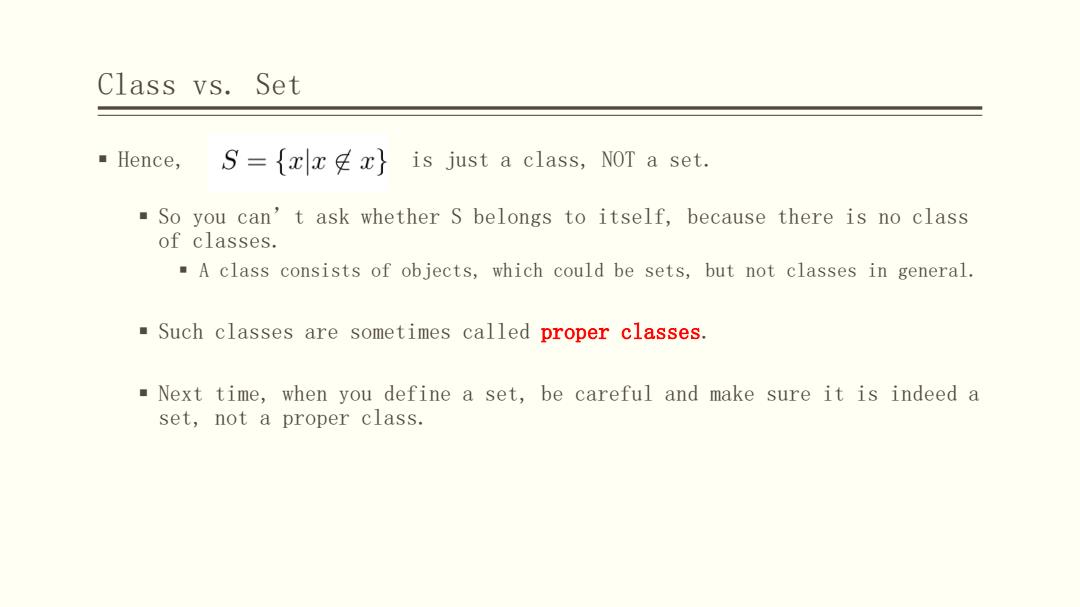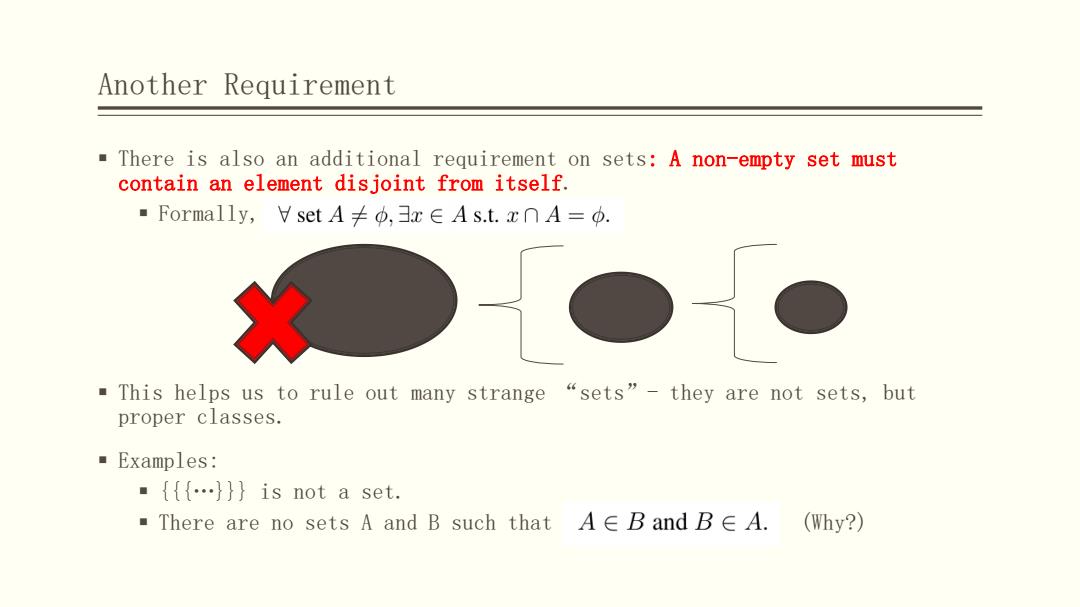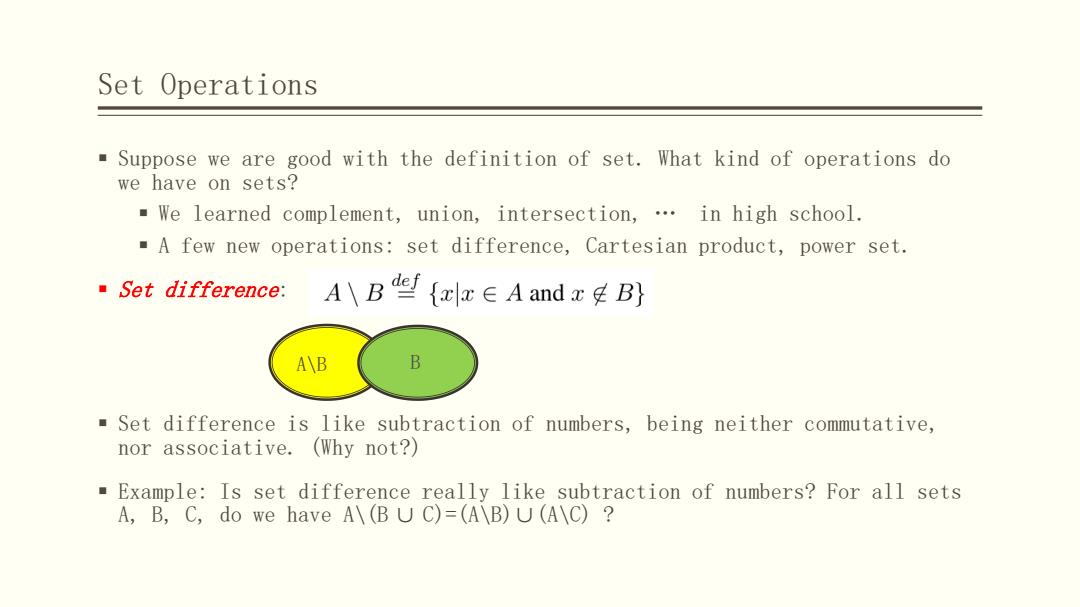
Class vs.Set ■Hence,. S=fxxgx}is just a class,NOT a set. So you can't ask whether S belongs to itself,because there is no class of classes. A class consists of objects,which could be sets,but not classes in general. Such classes are sometimes called proper classes. Next time,when you define a set,be careful and make sure it is indeed a set,not a proper class
Class vs. Set Hence, is just a class, NOT a set. So you can’t ask whether S belongs to itself, because there is no class of classes. A class consists of objects, which could be sets, but not classes in general. Such classes are sometimes called proper classes. Next time, when you define a set, be careful and make sure it is indeed a set, not a proper class

Another Requirement There is also an additional requirement on sets:A non-empty set must contain an element disjoint from itself. ·Formally,V set A卡p,3x∈Ast.xnA=p. "This helps us to rule out many strange "sets"-they are not sets,but proper classes. ■Examples: ■{{…}}is not a set. There are no sets A and B such that A∈B and B∈A. (Why?)
Another Requirement There is also an additional requirement on sets: A non-empty set must contain an element disjoint from itself. Formally, This helps us to rule out many strange “sets”- they are not sets, but proper classes. Examples: {{{…}}} is not a set. There are no sets A and B such that (Why?)

No Infinite Descent of Belonging-to ■Exercise: (Nerode and Shore,Logic for Applications)Prove that there is no infinite sequence of sets {SnE such that for all n∈N,Sn+1∈Sn
No Infinite Descent of Belonging-to Exercise:

No Infinite Descent of Belonging-to Proof:[Adapted from Nerod and Shore]By contradiction. Consider S={SnnN.S is a set since we have enumerated all its elements,which are all sets. Since S is a set,there exists SE S such that Sns=. Since Sz+1∈S,Sx+1年Sx: The above contradicts the definition of sequence(Sn)nEN. DONE Implication:Think of all kinds of "sets"that have been disallowed!
No Infinite Descent of Belonging-to Implication: Think of all kinds of “sets” that have been disallowed!

Set Operations Suppose we are good with the definition of set.What kind of operations do we have on sets? We learned complement,union,intersection,.in high school. A few new operations:set difference,Cartesian product,power set. ·Set difference: :A\Beg{xlx∈A andB} A\B B Set difference is like subtraction of numbers,being neither commutative, nor associative.(Why not?) Example:Is set difference really like subtraction of numbers?For all sets A,B,C,do we have A\(BU C)=(A\B)U(A\C)?
Set Operations Suppose we are good with the definition of set. What kind of operations do we have on sets? We learned complement, union, intersection, … in high school. A few new operations: set difference, Cartesian product, power set. Set difference: Set difference is like subtraction of numbers, being neither commutative, nor associative. (Why not?) Example: Is set difference really like subtraction of numbers? For all sets A, B, C, do we have A\(B ∪ C)=(A\B)∪(A\C) ? A\B B